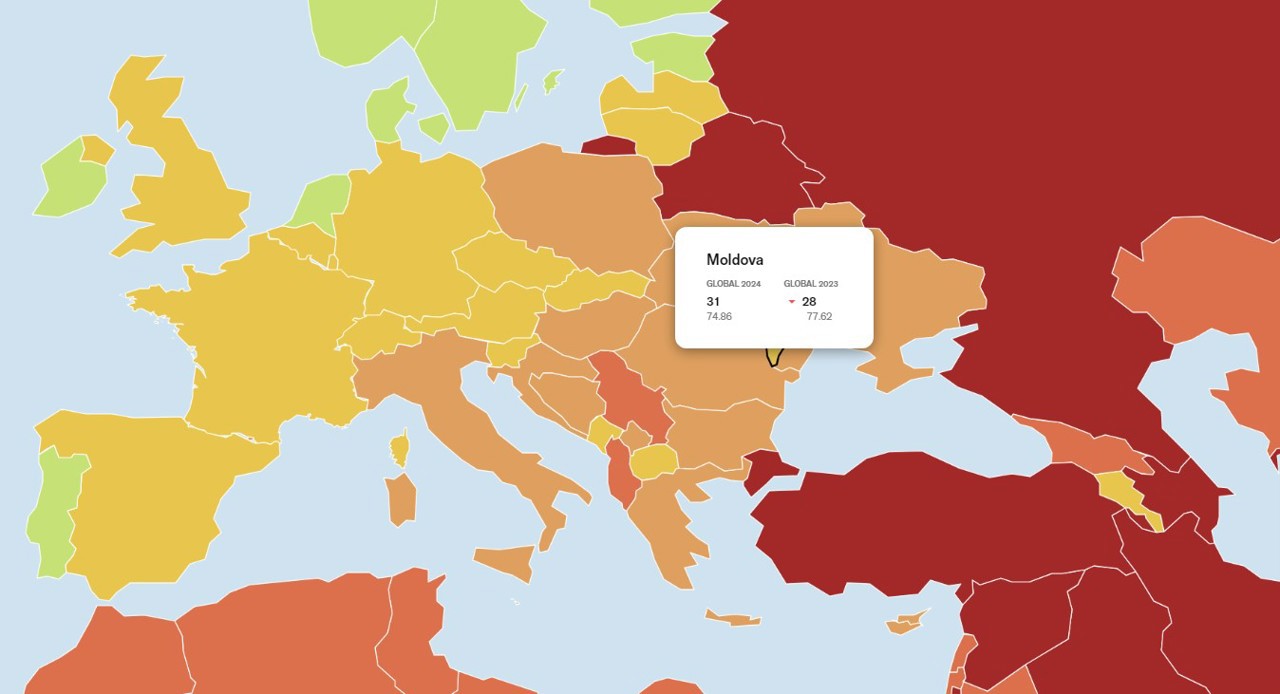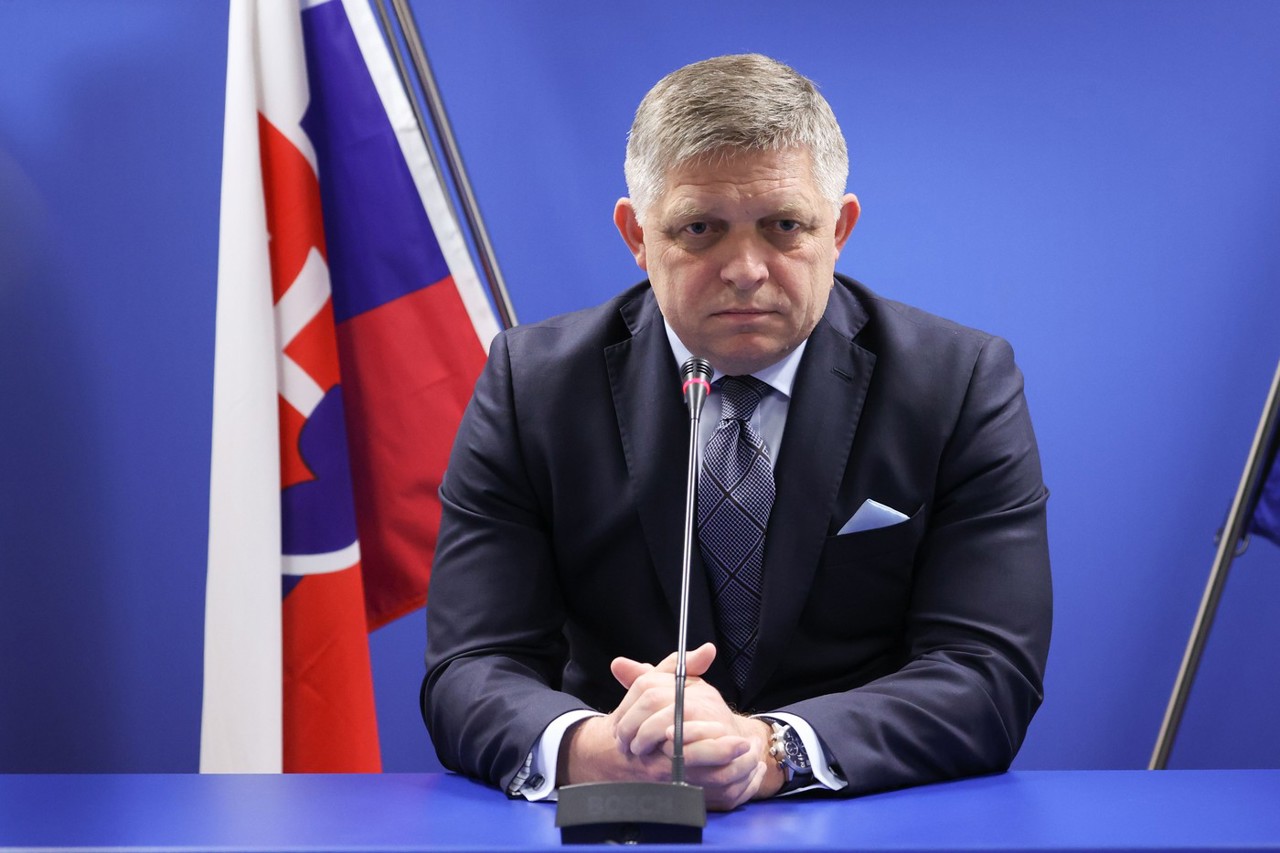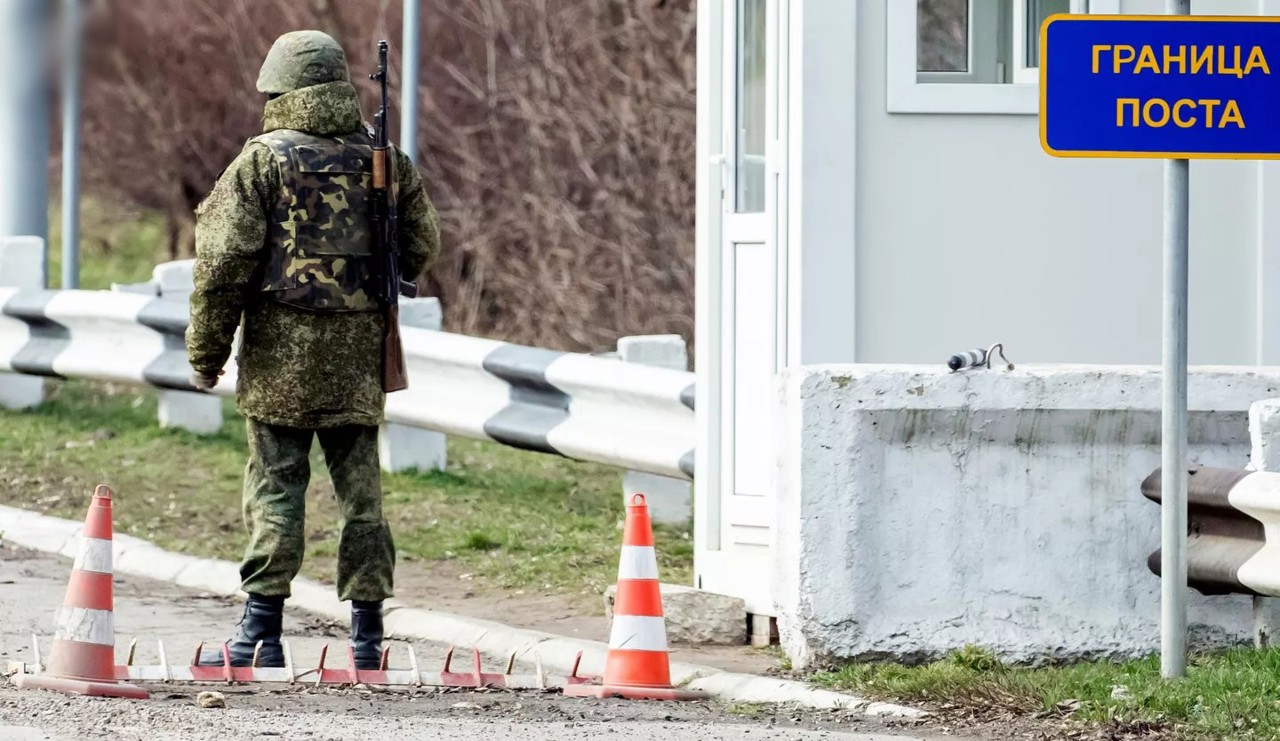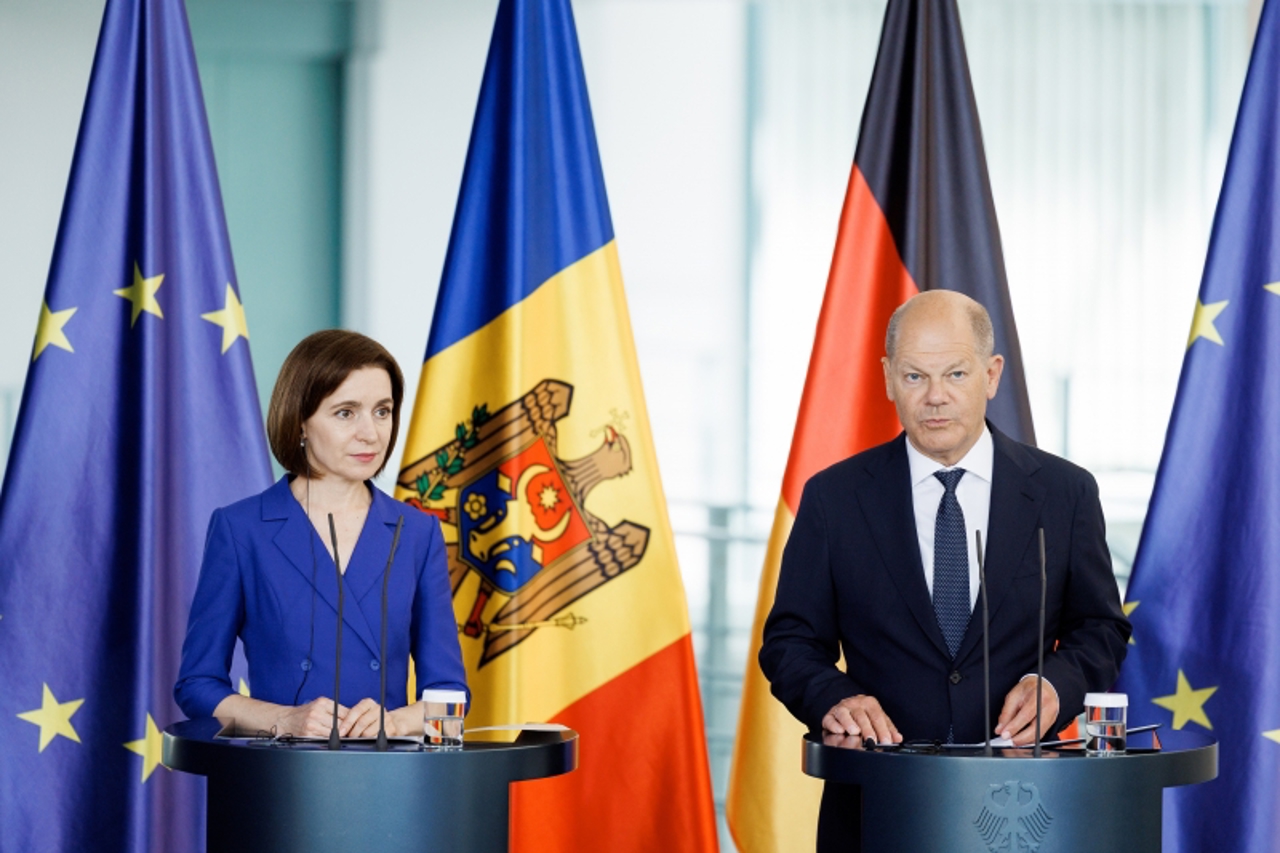Moldova Press Freedom Slips Amidst War, Politics
The Reporters Without Borders (RSF) organisation has released its 2024 Press Freedom Index, which highlights the current state of press freedom in Moldova.

While the country remains classified as having a high degree of press freedom, its ranking has slipped from 28th to 31st place.
According to the report, journalists in Moldova may resort to self-censorship when covering sensitive topics, particularly those related to the ongoing war waged by Russia in Ukraine. The report further reveals that many journalists align their coverage with the political agenda of their affiliated party, and only a select few dare to tackle issues that could be critical of the authorities.
Moreover, RSF emphasises the vulnerability of Moldovan journalists to insults and intimidation by politicians. The report details that supporters of these politicians sometimes engage in cyberbullying against reporters deemed hostile to their views. Additionally, journalists seeking to access Transnistria, the breakaway eastern province backed by Russia, require special accreditation.
The media landscape in Moldova is currently facing economic hardship due to the collapse of the advertising market triggered by the war in Ukraine. This economic strain has resulted in a lack of resources for independent media outlets, hindering their ability to recruit qualified staff and deliver high-quality journalism. Many of these outlets are now seeking financial support from foreign donors to stay afloat.
The report also expresses concern regarding the rapid and opaque legislative changes implemented in late 2023. These changes were aimed at restricting channels whose licences were suspended during the state of emergency.
The RSF report points out that the state of emergency declared due to the Russian invasion of Ukraine was used by the Moldovan authorities to suspend the licence of multiple television channels on the eve of the 2023 elections. This suspension was enacted without sufficient transparency regarding the rationale behind the decision. The Audiovisual Council's subsequent measures to tighten control over disinformation and hate speech have had the unintended consequence of weakening media outlets that broadcast content produced by Russian propaganda outlets.
The report concludes by highlighting the polarisation of Moldova's media landscape, significantly influenced by Ilan Shor, a pro-Kremlin oligarch currently in exile to avoid corruption charges. The media empire built by companies linked to Shor was significantly weakened by the suspension of licences for six channels, including TV6 and Orizont TV, in December 2022 and November 2023. The licences of four additional channels connected to Vladimir Plahotniuc, another exiled oligarch and former leader of the Democratic Party of Moldova, were also suspended in November 2023. The content from these media outlets has migrated online to their websites and social media platforms.
Translation by Iurie Tataru




